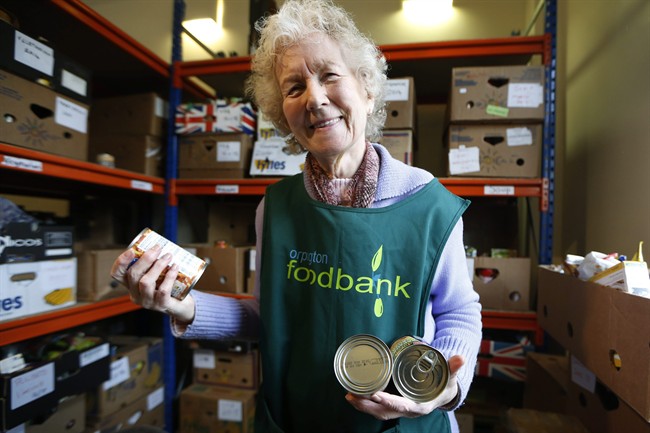Volunteers are not only good at taking care of others, but they are also good at taking care of their own health, according to a new study out of Harvard University.

The survey of more than 7,000 people aged 50 and over suggests volunteers are more likely to engage in preventive health care measures than non-volunteers.
Researchers found that volunteers are 47 per cent more likely to get cholesterol checks and 30 per cent more likely to get flu shots. They were also more likely to have various cancer screenings. In addition volunteers had 38 per cent fewer overnight hospital visits than non-volunteers.
“Seeing as this is the time of year for New Year’s resolutions, people may want to consider volunteering to not only help society but also their own health,” writes study author Eric Kim.
READ MORE: Volunteers giving time and efforts to better their community highlighted in report
Millions of volunteers make a difference in their communities across the country.
Ed Wahl of Scarborough, Ont. has helped thousands of kids over the years. For decades he’s been overseeing a hockey league and volunteers 30 to 40 hours a week — on top of a full time job.
If kids cannot afford to play the game, Wahl makes it happen with subsidies and fundraising. In Wahl’s world every kid deserves the opportunity to play.
“The kids mean everything to me,” Wahl told Global News.

WATCH ABOVE: Meet Ed Wahl, a dedicated hockey volunteer
Previous research has examined overall health benefits of volunteering, this study is the first to look at the link between volunteering and health care use.
Kim, a research fellow in the Department of Social and Behavioral Sciences at Harvard T.H. Chan School of Public Health, said “what surprised us was that this association persisted even after we controlled for a wide range of other factors including baseline health, health behaviours, social integration, stress, and personality traits.”
So why do volunteers take better care of themselves? A possible explanation according to study authors is that “volunteers experience more positive emotions, psychological well-being, and less depression, when compared to non-volunteers” and immune systems are bolstered by positive emotions. Also a sense of purpose in life, connections and social time with others – all has been linked with positive health outcomes.
Female volunteers were also 53 per cent more likely to receive mammograms and 21 per cent more likely to receive Pap smears

Researchers examined the link between health care use and volunteering over two years. The results were published in Social Science & Medicine.
As for Wahl, who was not involved in the study, for his efforts he was awarded one of Hockey Canada’s top 100 volunteers in the country, a hero of play.
He has no plans to slow down, “help as many as I can and continue giving back to children in the community.”
- Canadian man dies during Texas Ironman event. His widow wants answers as to why
- ‘Sciatica was gone’: hospital performs robot-assisted spinal surgery in Canadian first
- Canadians more likely to eat food past best-before date. What are the risks?
- Invasive strep: ‘Don’t wait’ to seek care, N.S. woman warns on long road to recovery




Comments